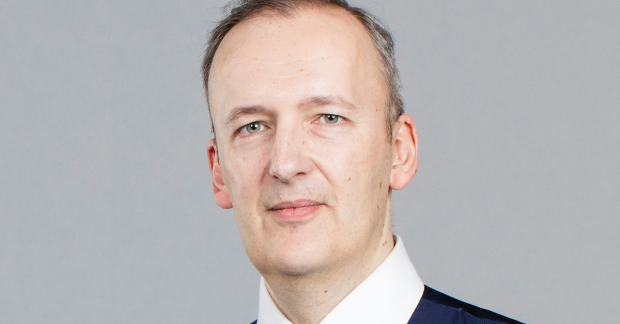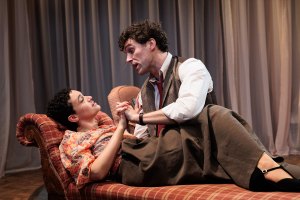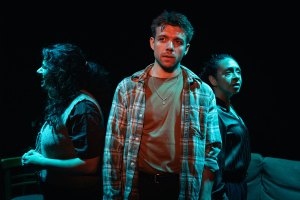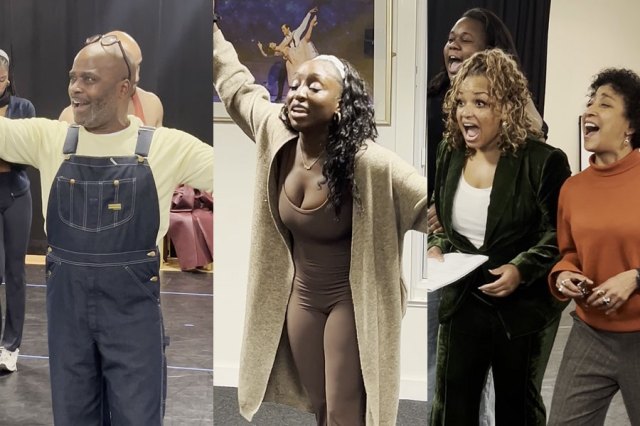SOLT and UK Theatre's Julian Bird on freelance support, insurance for theatres and hopes for 2021
Bird has been pivotal in discussions with the government over supporting the arts during the pandemic

© Society of London Theatre
If Julian Bird had predicted the year he was about to have back in January, it would have taken some serious imagination.
But the chief executive of the Society of London Theatre and UK Theatre has had a hectic ten months, there's no denying. With venues going through a blanket closure, small windows of re-opening and then months of uncertainty while the tier system is rolled out and amended, and rules and guidance carved out with meticulous detail before being rewritten weeks later.
Throughout, Bird has been liaising directly with government, the press and industry bodies – succinctly making the arts' case for governmental support while shining a spotlight on the community of freelancers that have fallen through the gaps (alongside director Sam Mendes, SOLT set up the much-needed Theatre Artists Fund to provide grants to those in need).
I spoke to Bird on his last working day of 2020 – 18 December (though he has almost certainly spent many hours across Christmas tackling various matters). Fresh concerns have naturally arisen in the intervening period – the swell of the new variant causing a major increase in cases, while the vaccine programme builds pace – setting up the possibility of a tentative return for theatres later this year.
Bird is pragmatic – there's still a lot of work to do. "The two two big things that everyone has come to realize more and more is that it's one big ecosystem. It's no good if the physical theatre buildings survive if there are no productions, and there are no productions if there aren't the freelancers there to make it happen. Or the supply companies that provide the sound or the lighting. We're also a lot more aware now of the fact that 70 per cent of the workforce is freelance."
"It's a tragedy", Bird says of the experiences freelancers face, "that this whole group of excluded people, not just in our industry but across economies, have not seen any real change. That's where the Theatre Artists Fund came from."
Insurance is the single most important thing for our industry to be able to reopen properly
The fund has provided over £5 million worth of support for those who are, in Bird's words, "in the most desperate need – people who are struggling to pay their bills, their mortgage, or couldn't put food on the table". By his own admission, Bird states he never thought he'd end up running a grant fund – but it's clear that the money has made a real difference to countless artists.
Despite Bird's individual achievements ("it is relentless, it never stops – the Sunday nights…), time and again he praises his team "it's not just me – it's the guys at SOLT and UK Theatre who have managed to achieve the most extraordinary things." Another major feat is the "See It Safely" campaign, which has been rolled out nationwide to reassure audiences that they are sitting in safe auditoria that are being opened in line with strict guidance – a campaign that will, almost certainly, become vital once again later this year.
Not that Bird, for a second, is resting on laurels – "there are many things we haven't been able to do and that, of course, is the frustration." Much has been said about the necessity for an insurance system that will give producers the confidence to stage shows without worrying about potential Covid consequences, and Bird elaborated on the issue: "You know, insurance remains one of the most important things for us to solve with the government and it's worth pointing out that the only reason that we need the government to solve it is because private insurers are not prepared to provide that insurance cover. Normally you wouldn't be looking to government to provide you with insurance. It's the failure of a private market. There are countless ongoing conversations – these conversations are iterative and over a long period of time. It's a long process that will extend long into 2021. But it's the single most important thing for our industry to be able to reopen properly."
Did Bird have any highlights from 2020 (in a year of few highlights, of course)? The introduction of the Cultural Recovery Fund (a £1.5 billion package explicitly set up to aid the culture and heritage sectors) was one: "We were very pleased and grateful to the government and, while there are many things the CRF hasn't done, but had we not had that money, we would be an industry in a much, much worse state than we are at the moment. Everyone focusses on what it hasn't done, but it has essentially prevented a huge number of organisations going bust – that's pretty extraordinary."
Another highlight for Bird was the specially tailored digital Olivier Awards, which saw wins for Sam Tutty, Miram-Teak Lee and Dear Evan Hansen. While not the massive production that had to be pulled three weeks ahead of time at the Royal Albert Hall, the event was a night of solidarity and unity for the community.
A third was the chance to actually go into a theatre though, as Bird remarks, "that all feels bittersweet". But it goes much further than that: "I guess the highlight really is the sort of cooperation that's been seen across the industry. Everyone talks about theatre as one community and in the main that has proved to be true – you know, people have rallied together. They have worked together."
Bird remains optimistic – "There's huge light at the end of the tunnel. The vaccine roll-out is the thing that will break this for us. Different people will obviously open at different times, but I think we will see gradual reopening. Some of the new shows that are coming in like Back to the Future and Moulin Rouge! are massive crowd pleasers that people will flock to."
Applications for the Theatre Artists Fund are open now.












